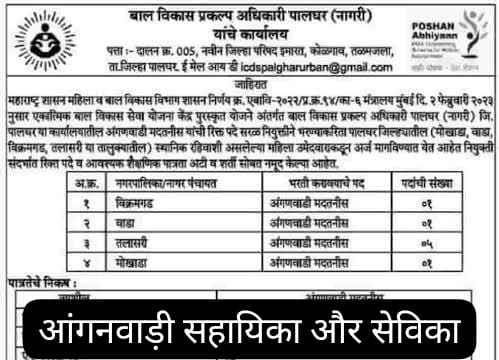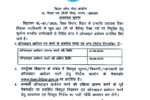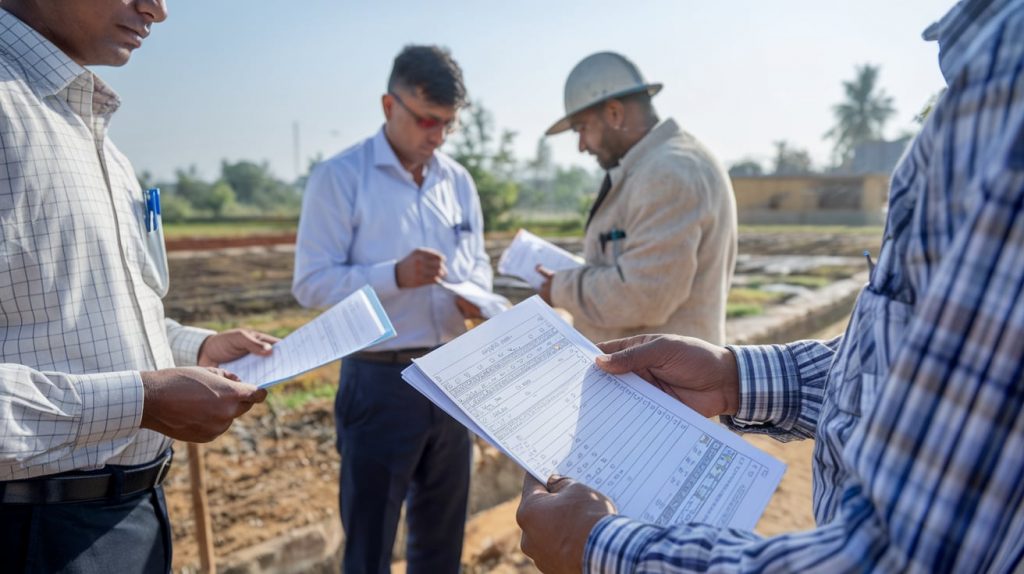| Job :- Bihar Anganwadi Sevika Sahayika Vacancy 2024
About this job :- An Anganwadi Sevika Sahayika is a trained community health worker who serves as a point of contact for various health and development services in villages. They are typically women from the local community, chosen for their understanding of the local culture and needs. Their primary focus is on improving maternal and child health, ensuring nutrition, and providing education and support to families. |
|
| Application Start Date | 22/10/2024 |
| Application Last Date | 25/11/2024 |
| Job Post Name | सेविका+सहायिका |
| Total Post | 66 |
| Apply Mode | Online |
| Official Website | sheohar.nic.in |
Bihar Anganwadi Sevika Sahayika Vacancy 2024
Anganwadi Sevika Sahayika पदों के लिए आवेदन online के mode से लिए जायेगे | इसके लिए फॉर्म कब से कब तक लिए जायेगे इसकी तिथि के बारे में पूरी जानकारी निचे विस्तारित रूप में दी गयी है | अगर आप इन पदों के लिए फॉर्म भरना चाहते है तो तिथियों से जुडी जानकारी को ध्यान से जरुर पढ़े | जिससे की आप निर्धारित समय से इसके लिए आवेदन कर सके |
Anganwadi Sevika Sahayika की सूचना जारी होने की तिथि :- 22/10/2024
ऑनलाइन आवेदन की अंतिम तिथि :- 03/11/2024
मेधा सूची प्रकाशन की तिथि :- 15/11/2024 से 01/12/2024 के बीच (संभावित)
Bihar Anganwadi Sevika Sahayika Vacancy 2024 : Education Qualification
दोस्तों अगर आप आंगनबाड़ी सेविका एवं सहायिका का फॉर्म भरना चाहते है तो-
- आपको कम से कम किस भी मान्यता प्राप्त शैक्षणिक संसथान में इंटर (बारहवीं) अथवा समकक्ष उत्तीर्ण होना अति आवश्यक है |
- सर्वोच्च शैक्षणिक (अतिरिक्त विषय छोड़कर) वाले अभ्यर्थी का चयन सेविका तथा सहायिका पद पर किया जायेगा |
Bihar Anganwadi Sevika Sahayika Vacancy 2024 : Age Limit
- आंगनबाड़ी सेविका/सहायिका में फॉर्म भरने के लिए कम से कम आपकी उम्र 18 साल होनी चाहिए |
- अगर उपरी सीमा की बात करे तो आपकी उम्र अधिकतम 35 साल से अधिक नही होने चाहिए |
Bihar Anganwadi Sevika Sahayika Vacancy 2024 : criteria
Anganwadi Sevika Sahayika के में योगता निम्नलिखित इस प्रकार है
- आवेदक स्थानीय निवासी होना चाहिए |
- आवेदक के पास मतदाता कार्ड होना आवशक है |
- आंगनबाड़ी सेविका/सहायिका चयन हेतु वार्ड का निवासी होना आवश्यक होगा |
- आवेदन पत्र के साथ सक्षम प्राधिकार से निर्गत स्थायी आवासीय प्रमाण पत्र संलग्न तथा वार्ड अंकित करना अनिवार्य होगा |
Bihar Anganwadi Sevika Sahayika Vacancy 2024 : में आवेदन के तरीके
आंगनबाड़ी सेविका/सहायिका पदों के लिए फॉर्म भरने के लिए आपको निम्नलिखित प्रक्रिया का पालन करना चहिए | ऑनलाइन मोड से लिए जायेगे |
- फॉर्म भरने के लिए आपको सबसे पहले इस आर्टिकल के Important Links सेक्शन में जाना होगा|
- वहां जाने के बाद आपको Online Apply का लिंक मिलेगा जिस पर आपको क्लिक करना होगा |
- अब आपके सामने एक नया पेज खुलेगा |
- जहाँ से आपको अपना रजिस्ट्रेशन करना होगा |
- इसके बाद आपको इसका Login ID & Password मिलेगा |
- जिसके माध्यम से Login करके आप इन पदों के लिए ऑनलाइन आवेदन कर सकते है |
| Important Link | |
| Apply Online | Click here |
| Already Login | Click here |
| Previous Post | Click here |
what is the Role of an Anganwadi Worker
A Pillar of Community Health and Development. Anganwadi workers play a crucial role in India’s public health and nutrition framework, particularly in rural areas. As the backbone of the Integrated Child Development Services (ICDS) program, these dedicated individuals are essential in promoting child development, maternal health, and nutrition. Let’s explore the responsibilities, challenges, and the impact of Anganwadi workers on their communities.
What is an Anganwadi Worker?
An Anganwadi worker is a trained community health worker who serves as a point of contact for various health and development services in villages. They are typically women from the local community, chosen for their understanding of the local culture and needs. Their primary focus is on improving maternal and child health, ensuring nutrition, and providing education and support to families.
Key Responsibilities
Child Nutrition and Health: Anganwadi workers monitor the growth and nutritional status of children under five. They provide supplementary nutrition, conduct health check-ups, and refer malnourished children to healthcare facilities.
Maternal Health: They educate pregnant and lactating women about nutrition, breastfeeding, and immunization schedules. This is critical for reducing maternal and infant mortality rates.
Early Childhood Education: Anganwadi centers provide early childhood education, helping children develop cognitive and social skills through play and structured activities.
Community Awareness: Anganwadi workers conduct awareness programs on health issues such as hygiene, sanitation, family planning, and the importance of vaccinations.
Data Collection and Reporting: They maintain records of the health and nutrition status of children and mothers, which is essential for program evaluation and planning.
The Impact of Anganwadi Workers
The influence of Anganwadi workers extends far beyond individual families. They contribute to the overall development of their communities by:
Reducing Malnutrition: By providing nutritional support and education, Anganwadi workers play a significant role in combating malnutrition among children.
Improving Health Outcomes: Their efforts in maternal and child health have led to increased immunization rates and reduced mortality rates.
Empowering Women: Anganwadi workers often become community leaders, empowering other women by promoting health, education, and self-reliance.
Strengthening Community Ties: They act as a bridge between the government and the community, ensuring that families receive the necessary services and support.
Challenges Faced
Despite their vital role, Anganwadi workers face numerous challenges:-
Limited Resources: Many Anganwadi centers struggle with inadequate supplies, which can hinder their ability to provide essential services.
Workload and Recognition: Anganwadi workers often juggle multiple responsibilities with little financial compensation or recognition, leading to burnout.
Community Awareness: In some areas, lack of awareness about the services provided by Anganwadi centers limits their effectiveness.
Conclusion
Anganwadi workers are indispensable to the health and development of rural communities in India. Their dedication, resilience, and connection to the community make them vital agents of change. To maximize their impact, it is essential to provide them with adequate resources, support, and recognition for their hard work. As we acknowledge their contributions, we must also advocate for policies that empower these grassroots workers, ensuring a healthier and more educated future for generations to come.
By supporting Anganwadi workers, we are investing in the very foundation of community health and development.









